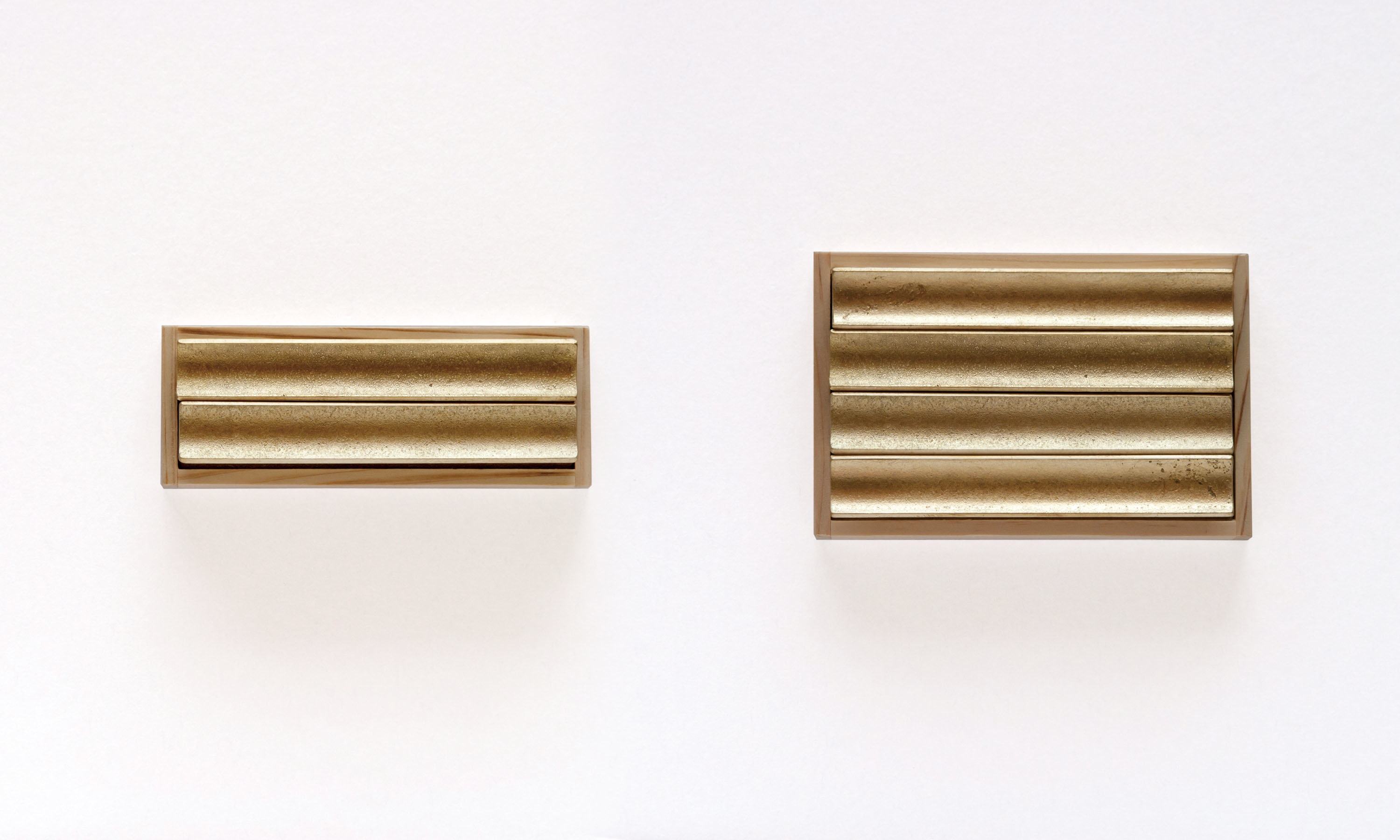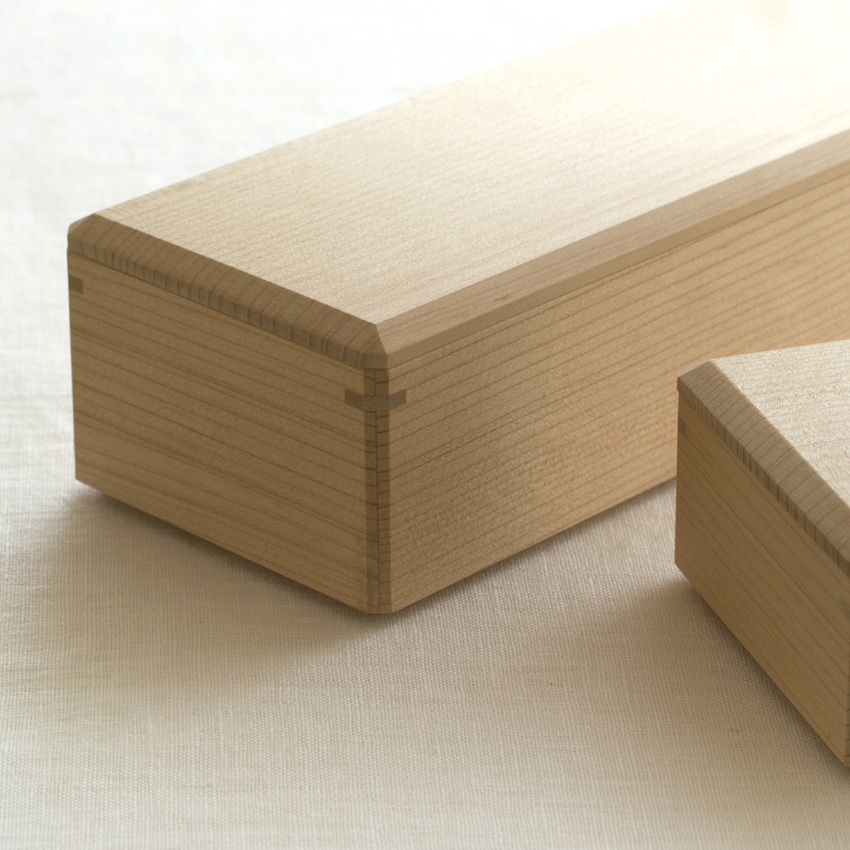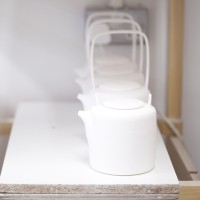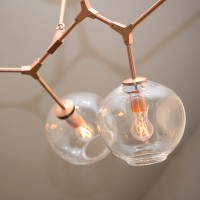mdby……OJI MASANORI








Aujourd’hui, nous vous montrons le travail d’Oji Masanori, un dessinateur japonais, tout manufacturé et vous connaîtrez son critère pour dessiner et pour vivre.
Oji, vous avez commencé à travailler dans une étude d’architecture, et tout de suite dans une étude de dessin graphique, comment avez-vous décidé ?
J’ai étudié de la calligraphie dans l’institut et l’architecture dans l’Université. J’avais une légère idée de, celui ce que je voulais faire après avoir reçu le titre, mais je ne savais pas dans ce que je pourrais joindre vrai ou voulais faire. D’abord, j’ai travaillé dans un bureau d’architecture. Durant cette période, je me suis rendu compte que les projets de grande échelle ne me semblaient pas réels, et j’ai changé de travail à une étude de dessin graphique. Et je me suis rendu compte que je n’emboîtais pas non plus avec moi la surface plate du dessin graphique et j’ai passé assez de temps indécis. Puis, j’ai crée mon propre bureau, j’ai fait mes propres dessins, mes produits, je les ai vendus et alors, je me suis rendu compte que c’était cela ce que je voulais faire.
Je me suis rendu compte de que mon travail était meilleur avec des objets qu’avec espaces, et que les éléments me plaisaient avec textures plus que les surfaces plates. Je me suis aussi rendu compte que différentes échelles joignent à différents types de personnes.
Comment avez-vous créé la marque OJI et DESIGN?
J’ai crée un bureau de dessin où je suis né, à Hiroshima, où je me suis spécialisé dans un dessin graphique. Dans cette époque-là, je dessinais et vendais les objets que je faisais. Cette expérience m’a généré vouloir faire plus de produits de dessin, ainsi que j’ai laissé le bureau de Hiroshima à mon partenaire et je me suis déplacé à Tokyo. Là, j’ai commencé une nouvelle affaire autour du dessin de produits. J’ai connu le dessinateur Shu Hagiwara et un client spécialisé en dessins des artisans, Akiko Hino. Ils m’ont introduit dans le monde du dessin des artisans et des techniques traditionnelles.
Avez-vous eu un mentor qui vous a aidé et guidé?
Je ne ferais pas ce que je fais maintenant si je n’aurais pas connu le calligraphe Toshihiro Kobayashi, qui m’a appris de la calligraphie dans l’institut. En général, dans l’éducation japonaise, les leçons de calligraphie aident à améliorer l’écriture des élèves. M. Kobayashi m’a appris la calligraphie comme un « art », et j’applique ce que j’ai appris avec lui à mon actuel travail.
Je suis très intéressée sur votre travail en bois, vous utilisez différents types de bois, avez-vous une favorite?
Aucune ne me plaît spécialement.
Il me plaît de savoir les caractéristiques de la bois pour voir lequel va être utilisée avec chaque produit. Je demande à l’artisan les possibilités en ce bois et essaie de faire une forme que meilleure dentelle à ses caractéristiques.
Vos travaux en bois sont basés sur des concepts géométriques, est-elle pour vous important de montrer la géométrie dans tes dessins?
La géométrie me plaît. Mais seulement je l’utilise si elle aide à résoudre des problèmes; je ne dessine pas pour utiliser la géométrie.
Les couleurs ne participent pas à votre travail en bois, seulement achevés dorés et obscurs, qui est la raison?
Pour moi, la couleur est la couleur du matériel de base que j’utilise et je veux le montrer dans l’extérieur. Ils me plaisent les achevés qui montrent que la surface extérieure est en relation avec le matériel.
J’adore le produit appelé 真鍮 の 箸置き, (traduction impossible pour moi …) pourquoi le bois finisse de l’or?
Je ne crois pas qu’il soit approprié le fait d’utiliser du bois pour faire les formes des appuis des bâtonnets.
Dessinez-vous tous vos objets avant de commencer à les fabriquer? Ou avez-vous une idée dans votre tête et vous travaillez avec le matériel à voir qu’est-ce que vous obtenez?
Je fais toujours un suivi soigneux du processus de fabrication manuelle et des matériels, et parle aux chefs des artisans, qui sont aussi artisans. Je crois que je ne comprends pas tout celui qu’ils font, mais je les respecte. L’objectif n’est pas de faire des formes; les formes sont nécessaires pour pouvoir utiliser des matériels.
Fabriquez-vous vos objets à la main dans le processus de conception? Ou avez-vous un processus industrialisé?
Je fais des esquisses à la main, tout de suite je fais un dessin dans 3d et construis une maquette. Je travail sur le dessin et je refais la maquette du prototype plusieurs fois, mais je n’utilise pas de logiciel de construction de maquettes dans 3d.
Comment vos idées surgissent-elles? Quelles sont vos sources d’inspiration?
Je suis inspiré par ma propre vie quotidienne. La vision de la vie de mes amis au Japon et à l’étranger. Parler aux chefs d’entreprise et des artisans dans les usines. Discuter avec le personnel de la boutique. Musées dans plusieurs villes …
Pour voir et entendre ces choses, je me suis inspiré pour fabriquer des produits artisanaux et d’aider l’utilisateur à se connecter et de vivre ensemble dans la continuité et l’harmonie.
Dédiez-vous le temps de votre travail aux publications pour vous faire connaître et augmenter des ventes?
Je fais seulement tweets et pends quelques images à Instragram; je ne suis pas très connecté par les médias.
Comment vendez-vous vos produits?
Chaque artisan distribue ses objets aux acheteurs directement. Pour des marchés dans l’extérieur, j’ai collaboré avec quelques amis pour créer une entreprise appelée IFJ, et cette entreprise s’occupe à distribuer les objets que je dessine.
Qui a été le meilleur et le pire moment de votre vie professionnelle?
Le meilleur a consisté en ce que FUTAGAMI a été très bien accepté entre le public.
Il n’y a pas de mauvais moment. Tout ce qui m’arrive est inévitable, je ne le perçois pas comme un malheur.
Qu’est-ce qui est la beauté pour vous?
Prendre soin des autres. J’aspire à être une personne unique près des autres.
Qu’est-ce qui est le plus difficile et ce qui vous plaît plus de votre travail?
Le plus difficile est quand j’ai les doutes de sujets lesquels je me pose durant le processus de dessin.
Ce qui me plaît est le dynamisme dans le moment dans lequel l’image d’un produit commence à émerger, on est quand les doutes commencent à s’évanouir.
Lequel a été votre grande réussite?
Le fait d’avoir une entreprise merveilleuse.
Avez-vous un rêve pour l’avenir?
Créer un endroit où mes associés de tout le monde peuvent se réunir.
Un conseil?
Accepter toutes les difficultés et les fortunes comme viennent, et que tout le monde fait le meilleur qu’il / elle peut faire.


